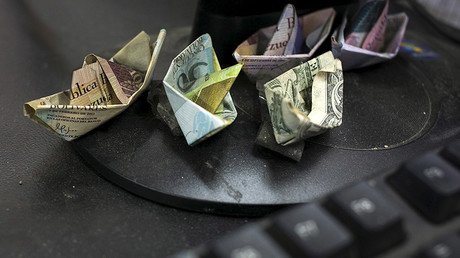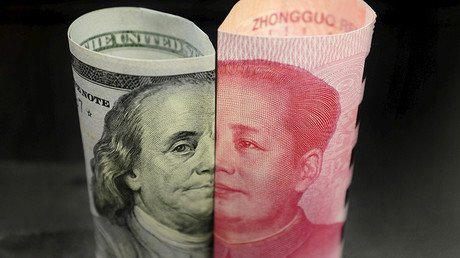Nightmare before Christmas for petrodollar as yuan-priced crude futures due to launch

China has successfully completed its fifth round of yuan-backed oil futures testing may officially begin the contract by the end of this year. It seeks to challenge the dominance of the petrodollar.
Last week the Shanghai International Energy Exchange said the system has met all the listing requirements after rehearsals for futures trading denominated in the Chinese currency.
“An official launch during Christmas would be appropriate. The Western market would be quiet and allow the Shanghai exchange as well as Chinese investors to adjust in the early days,” Chinese trader Yuan Quwei told Bloomberg.
According to Wang Xiao, an oil analyst at Guotai Junan Futures “The Chinese oil industry wants to have a local hedging tool while institutional investors look at Shanghai crude futures as an important product in their portfolios.”
“Shanghai oil will be the first Chinese product that allows foreign investors to trade directly and such involvement will surely bring more volumes,” said Wang.
As the largest energy consumer China is interested in having oil contracts in yuan. Beijing plans to introduce its own oil benchmark which will rival Brent or West Texas Intermediate. Experts say Chinese authorities will need to first convince large oil producers and consumers to use the yuan and invest in the Shanghai benchmark.
The Chinese government announced plans to start a crude oil futures contract priced in yuan and convertible into gold earlier this year. The contract enables the country's trading partners to pay with gold or to convert yuan into gold without the necessity to keep money in Chinese assets or turn it into US dollars.
The rise of the petro-yuan: China is aiming to overthrow US dollar as currency of choice for oil markethttps://t.co/zAWwWmjFiMpic.twitter.com/LPuJDfb2W6
— RT (@RT_com) October 29, 2017
It has the potential to help China’s push for yuan internationalization significantly, analysts claim. Beijing plans to promote the use of its currency in the global commodity markets, according to Pan Hongsheng, the deputy secretary general of the People’s Bank of China’s monetary policy committee.
He said the countries within the Belt and Road initiative, which are exporting a significant amount of commodity products to China, should start using yuan-denominated crude oil futures as a benchmark for pricing.
The official added China will push forward the formation of pricing systems for yuan-denominated commodity products and encourage local commercial banks to launch innovative financial services to support these developments.















